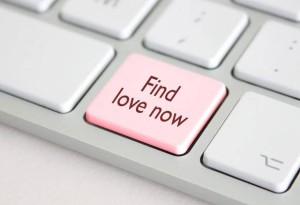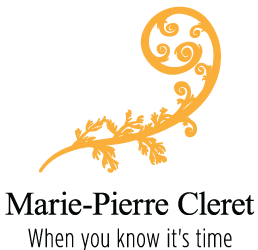Currently in the West, the most common way to meet new potential partners I hear about is through the internet. A plethora of dating sites exist to meet the different needs, ranging from the hook-up oriented type to those that claim to cater for the market of people who want more than a one night stand. For a lot of people, the dilemma is – are they looking for The One or The One For Right Now?
They’re not the same thing.
 When I listen to people telling me about their experiences with dating sites, what happens once they are notified that they are potentially of interest to someone or they have left a sign that they have some interest in another person on the site, I am struck by the range of issues that arise, even in the most avowedly hardboiled among them.
When I listen to people telling me about their experiences with dating sites, what happens once they are notified that they are potentially of interest to someone or they have left a sign that they have some interest in another person on the site, I am struck by the range of issues that arise, even in the most avowedly hardboiled among them.
Take Tinder for instance, an app that sends you pictures of potential prospects: you swipe right on your screen if you find them passingly interesting, left if they’re not to your taste in the moment. On what basis are people ‘swiping’? From what I hear, it’s about a momentary flash of physical interest. That’s it. Based on that, the decision to swipe either way is largely about assumptions, hopes and expectations that the person swiping generates about the other person’s photo in that moment’s viewing. When I ask people, they tell me they read all sorts of things – in the smile, the eyes, the jaw, the kind of photo context or pose. In these brief moments, a decision is made – yes, I might want to find out more or no I don’t. Maybe that one glance decision is fine for a casual encounter, but is it working when we consider how satisfied users are with their experience?
When I ask men and women about their reasons for using Tinder over a more involved app where they have to put together a more detailed profile and also consider others’ more thought-through profiles, I typically hear a division between the genders. Men, on the whole, are open about it when they mainly seek a one night stand or a fling. Sex is the main item on their agenda. Women, on the other hand, partially perhaps due to the fact that Western society still judges women harshly for openly seeking to connect solely for sex, tend to tell me they want a ‘relationship’. But they tell me, what they net on the app might be fun too ‘for now’.
I sit all day long listening to people and their lives, how happy or otherwise they feel about the choices they have made, the dilemmas and consequences they face as a direct result of those choices, and how they are keen not to repeat past errors or transcend the sometimes limiting choices that arose out of their upbringing. When they tell me about their search for a relationship, I put some time into asking them what they’re looking for. In considering which app to use, and many use several at once, I find it useful to first establish what they mean by a ‘relationship’. I hear the word used to mean everything from a brief fling to a life commitment. I look at how they choose to deal with prospects when they learn that they are there: how they decide who to meet, and who to ignore or send off after a brief exchange of texts or emails. A lot is determined by the way we enter relationship with a prospect. In my experience, we can often trace back the patterns that become entrenched in a relationship from the earliest beginnings in the first communications.
If it’s a one night stand someone tells me they’re after, I check – is sex something they can participate in the way they might share a cup of coffee with a stranger? I know that sounds odd, but effectively, a one (or several) night stand requires (along with condoms, contraceptive protection and regular STI checks), a robust boundary and careful management of personal details, a capacity to hold the agreement in mind when fantasies of a future start up (“it’s just a hook up”), along with a capacity to hold in check any romantic hopes that might arise, a solid capacity to resist the pull to attach or want more, and an ease at detaching after a brief encounter. Hook ups and brief flings require a high level of skill at remaining detached, or at least, at maintaining strategic distance. Given this is a stranger, hook ups also require a certain amount of personal power to back oneself up in the event of things not turning out to be quite as civil as one had hoped. Regardless of how they end, hook ups require participants to develop a kind of psychological ‘thick skin’. It takes quite a lot of discipline to move from quick starts and sudden, often ambiguous, endings, to continue to put oneself ‘out there’ on the relationship market, to maintain a detached-but-not-too –detached stance, to be treated as disposable rather than valuable and unique, and to treat others as commodities, also disposable and replaceable rather than valuable and unique .
That’s a lot of prerequisites. Given that oxytocin, the cuddle hormone as it’s called, predisposes us to want to bond very quickly when we engage in sex, particularly for women, the challenges to keeping a cool head are there from the start. I often hear women grieve over a man they’ve met on Tinder a few times who they enjoyed and thought who enjoyed spending time with them, who has since disappeared without a word of explanation. They feel discarded and hurt. When I hear this grief, I note that their hopes from the encounter were more than what I would expect from a hook up. It seems that, if a contact feels like ‘connection’, oxytocin does its thing. If the prospect is kind, considerate, attentive to their needs as well as his own, and somewhat able to conduct a conversation, many women start imagining that a more involved relationship might be on the cards. Alas, that’s often not the case: a deal’s a deal. Tinder is a hook up place. On this platform, sex is the currency and everyone a commodity – all are disposable, from the first swipe onwards.
The other issue that few people talk about is the, by now well-researched, finding that more choice is NOT necessarily the key to finding the best choice, or indeed, to happiness. There are many studies in psychology that have found that, the more options people are given, the less likely we are to be happy with our choice if we make one, and for some of us, the more likelihood we are of not making any choice at all. So it is in the relationship marketplace, particularly for folks who use apps that are more designed for hook ups than for anything more lasting.
 The ‘swipe left, swipe right’ mentality sets us up to think of potential relationship prospects as commodities – we like, we don’t like, decided in a moment’s mood, at a glance. We are encouraged to develop a mindset of assuming that we could recognise and accurately choose ‘the One’ based on such limited information, when in fact, we are selecting The One For Right Now. In this way, we treat others and ourselves as commodities. In this mindset all people are reduced to being roughly equivalent, reducible to one face, one body equally replaceable by another. We are primed to think of relationship selection in the way we might think of bargain hunting when we surf the web – we want the ‘best’ deal. For many, that translates to constantly thinking there might be something ‘better’ out there, and not staying with any one person for long, for fear of missing out (I have written about FOMO elsewhere).
The ‘swipe left, swipe right’ mentality sets us up to think of potential relationship prospects as commodities – we like, we don’t like, decided in a moment’s mood, at a glance. We are encouraged to develop a mindset of assuming that we could recognise and accurately choose ‘the One’ based on such limited information, when in fact, we are selecting The One For Right Now. In this way, we treat others and ourselves as commodities. In this mindset all people are reduced to being roughly equivalent, reducible to one face, one body equally replaceable by another. We are primed to think of relationship selection in the way we might think of bargain hunting when we surf the web – we want the ‘best’ deal. For many, that translates to constantly thinking there might be something ‘better’ out there, and not staying with any one person for long, for fear of missing out (I have written about FOMO elsewhere).
Needless to say, this creates the now commonly heard ‘commitment issues’ complaint. How can anyone trust that they have made a good decision if they are haunted by the idea that ‘they could do better’? As though selecting a mate were really equivalent to acquiring the best bargain on eBay. I will address this matter of ‘doing better’ in another blog post.
If you’ve been wading your way through the relationship marketplace lately using apps and websites as your entry point and not feeling very satisfied, ask yourself –
- When you look at the mindset you are in when you use the apps, are you looking to select or to browse?
- When you elect to meet up with someone, how do you approach the encounter? Is it the anticipation and the excitement of a novelty, are you seeking relief from the boredom or aloneness of the moment, or are you hoping for something more to come of this?
- Once you’re with the person you have selected, are you prepared to take time to explore what they might have to offer, or do you find yourself checking your app while they’re in the bathroom, or one they leave your company, wondering if there’s ‘something better out there’?
- How would you recognise something ‘better’ if you saw it? On what basis would you decide it was ‘better’?
- Do you find these encounters have become empty, almost predictable, boring, and you often find yourself feeling empty yourself afterwards? Do you find you’ve become jaded about relationship, thinking there might not be anyone out there for you?
If you find yourself launching from swipe to swipe, empty, disconnected encounter to frantic activity/ sex, only to land right back where you started – with your device in hand, sitting on the couch, swiping left and right, aimlessly searching for something you’re not quite sure of, STOP. Shut down the app, and ask yourself: is this enough? If it is fine, go back to your app. If you want more, then consider getting some help. Contact me and let’s see if we can improve your chances of having the kind of relationship you say you want.


